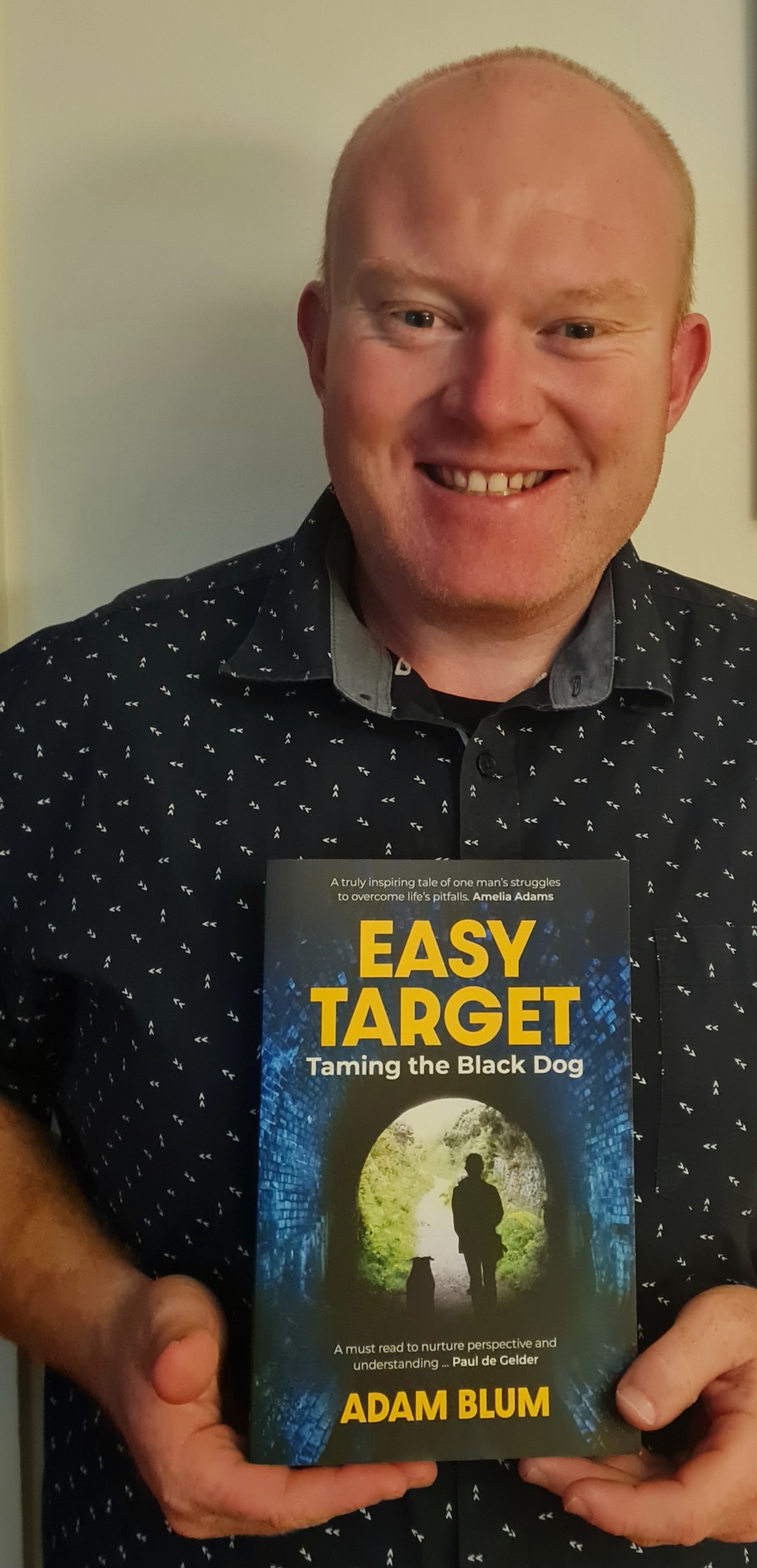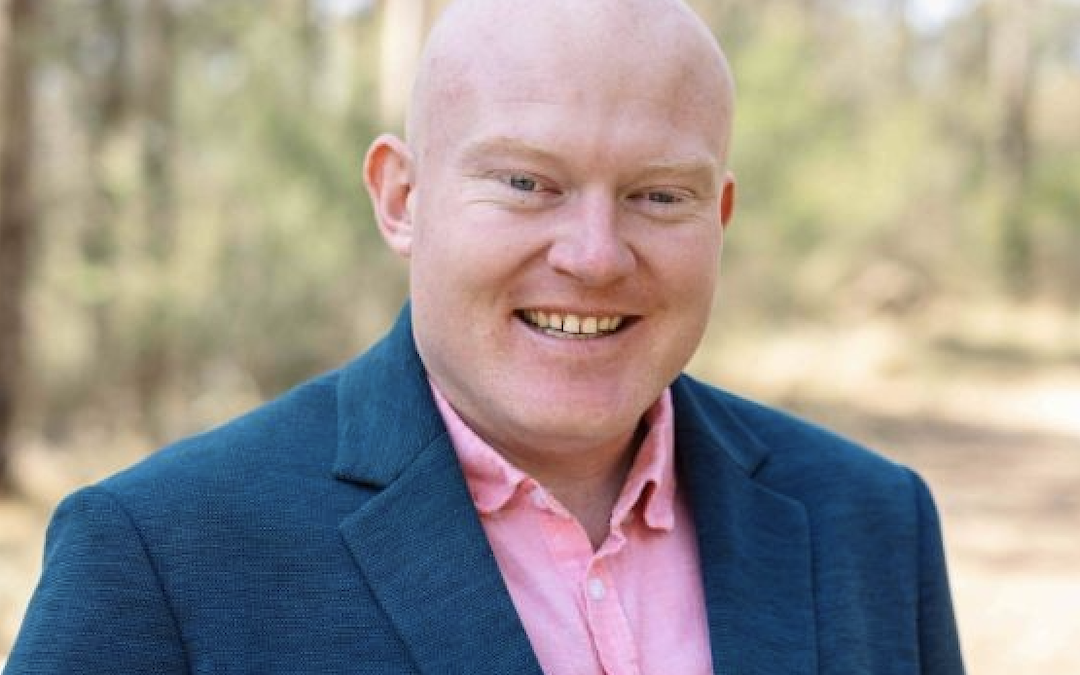Adam Blum, author of Easy Target, met with us to discuss the importance of speaking out and advocating for your own mental health.
His new book is an intimate account of his own experiences with depression, told with honesty and humour.
What inspired you to begin writing Easy Target?
I wanted to share my story because I didn’t think I had a story to tell. Ten years ago, when I attempted suicide, my self esteem was at an all time low. But then I began surrounding myself with positive people, like my mentor Janine, who believed in me. I learnt that everyone has a story, and it’s important to share just how far you’ve come.
So, really, the reason I wanted to write the book is to help people. If just one person who is struggling reads my book and realises there’s a light at the end of the tunnel, that’s enough.
What impact did bullying have on you as a child?
Twenty-five years ago, I was diagnosed with ADHD and learning difficulties. Nowadays it may not seem like a big deal since we know a lot more, but back then I was ostracised by my peers and my teachers pushed me aside in the classroom. I was told I would never amount to anything, and that affected me.
The bullying was really tough, and I didn’t have the resilience or the tools to deal with it. I was giving the bullies more ammunition, and it was a hard childhood.
But I’m not a victim. It made me who I am today, and I’m grateful for what I’ve gone through and come out the other side of.

Adam Blum with his new book, Easy Target
Why do you feel it is important to talk more about men’s mental health?
In the past, men have been told that they’re weak if they speak, and that’s crap. In fact, I wouldn’t be talking to you now if I hadn’t spoken up when I did and asked for help. There would be no Easy Target, I would just be another statistic.
I think we’re slowly breaking the stigma for men’s mental health, but there’s work to be done. And that’s why I’m such an advocate for men talking about mental health and sharing their feelings.
How can individuals build their sense of self-worth and inner strength?
The first step is to build yourself a tribe, surround yourself with positive influences. Positivity attracts positivity, so when you’re surrounded by good people, good things happen.
Step two is acknowledging the problem and learning to advocate for yourself. No one is going to do the work for you, so you need to be the one that wants to change. You’ve got to find the inner strength to be here and turn your situation around.
I now have daily things that keep me centred as well. Exercises, healthy eating and meditation have been real game changers.
Another big one is journaling. I journal every day, and even though you might not want to put your thoughts into a book, it definitely clears your mind. It gets it out, so it’s on paper and you can let go.
Most importantly, if you’re feeling a bit off, go and see a psychologist or someone who is not in your immediate circle of family and friends. They can give you an objective viewpoint and help you through the tough times.
Talk to me about your experience with the NSW Rural Fire Service and the True Blue Conversations podcast. How have these played a role in your own recovery and world view?
Being a first responder has been huge. When I was in my twenties and going through my suicide attempt, I just wanted to belong somewhere and give back. When I found the RFS, my brothers and sisters at the local brigade really helped me find my purpose and sense of belonging again.
Over the years, it has helped to build my confidence and I’m now a Deputy Captain. Now, when there’s a challenge I face, I draw on my experiences as a firefighter and that’s what I use to grow.
Also, the podcast has been such a cathartic and healing process for me. The best thing I ever did was starting the podcast and speaking to veterans and first responders to learn about why they joined the service and how they deal with adversity. By speaking to them I’ve learnt that we’ve all got challenges and we’re better for sharing them.
I’m a massive believer in sharing. My biggest goal with the podcast is just to let people know they aren’t alone. There’s always someone out there.

What do you hope readers will take away from your book? Have you received any feedback so far?
I’ve received a lot of feedback so far from people saying they appreciate how raw and vulnerable the book is, which has been great to hear. That’s why I wrote the book – so people struggling will know they’re not alone.
The one thing I hope people take away from the book is that there’s work involved in recovery. When the cards are dealt in your favour, and everyone says you’re amazing, it can feel easy to keep going. But when the cards aren’t dealt in your favour, you really need to dive deep and look at the inner you. I had to face a lot of ugly truths when writing my book, and it was a cathartic process.
Yes, I was the victim, but I am no longer the victim. I chose to face up to my bullies and go from surviving to thriving. That’s what I hope people take away from my book. I hope they read it and think ‘if he can do it, then I can too’.
At the end of the day, I’m happy knowing that I’ve written the best story that I can.
Do you have a final message to leave us with?
I just really want to emphasise that it’s not weak to speak. It’s actually a sign of strength.
My psychologist said to me that speaking up was one of the greatest things I’ve ever done and it really is. It’s a scary and confronting thing to do. You have to face some hard truths, but you can come out the other side and there is always someone who will listen. You are never alone.
If you or someone you know needs support, head to Lifeline Australia or the Black Dog Institute for access to important resources and information.
To read about the impacts of disordered screen use on mental health, click here.

